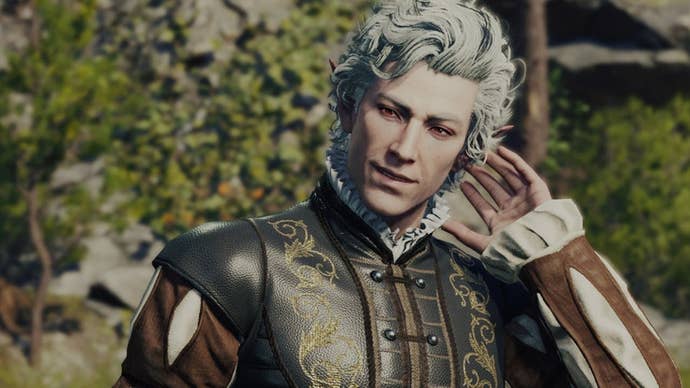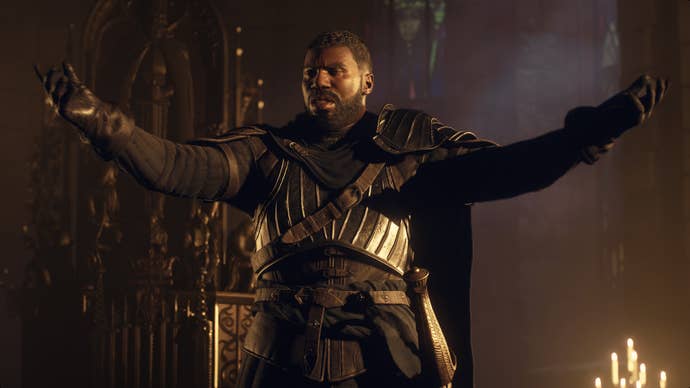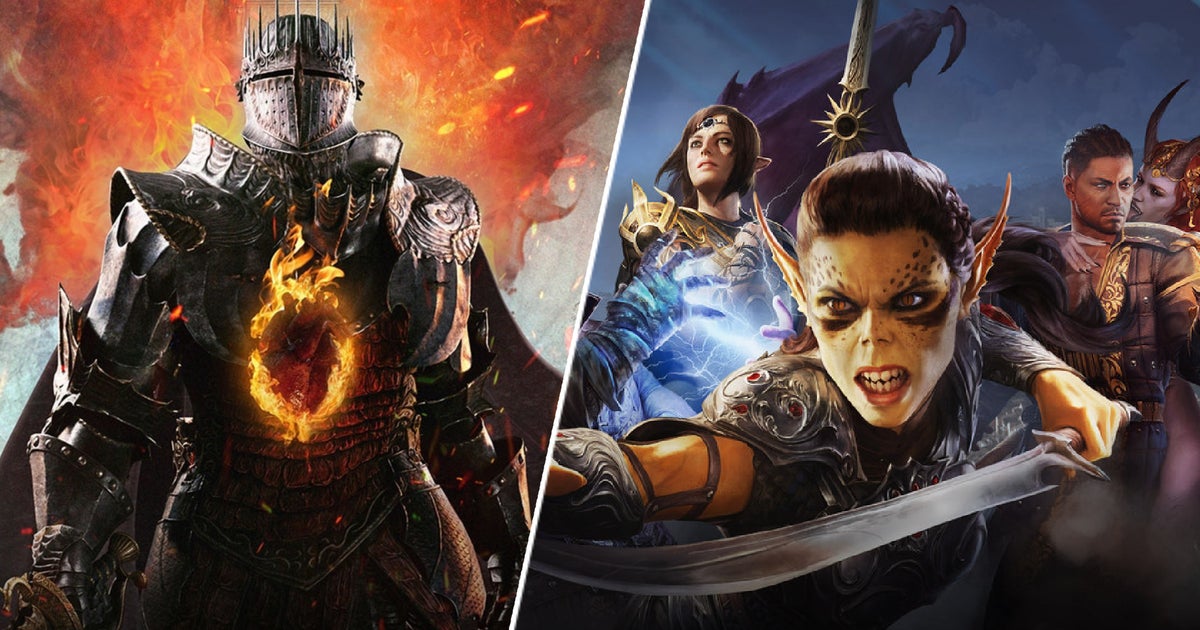The other day — and don’t worry, I’ve already secured permission to tell this story — I observed one of VG247’s own, in a moment of ardour during a discussion of the wondrous merits of Dragon’s Dogma 2, to utter the following statement: “F**k Baldur’s Gate 3.”
And fair enough, to each their own, but as I turned back to trudging the length and breadth of the twin kingdoms of Vermund and Battahl on foot (because there are no mounts or fast travel, in case you haven’t heard), fighting off procedurally generated enemies every six or seven steps, my esteemed colleague’s words made me realise something. I’m homesick for Faerûn.
Baldur’s Gate 3 was one of my favourite games of 2023, but due to a number of circumstances — not least of which was the release of Dragon’s Dogma 2 — I’ve only managed one proper play session since returning from my Christmas break. It’s been in the back of my head for a while now that I missed it, but at this moment, I realised I was missing it a lot.
Now, on paper, Dragon’s Dogma 2 should be scratching a lot of the same itches as Baldur’s Gate 3. But in practice, aside from both being fantasy RPGs in broadly medieval European-inspired settings, the two games have surprisingly little in common.
In addition to the usual gripes around the lack of proper fast travel, the one-save limit discouraging experimentation, and the irritant that is dubious microtransactions, there are some more nitpicky criticisms that I could level against Dragon’s Dogma 2 here. For example: as a trained medievalist in a former life, the cod-Shakespearean dialogue inexplicably favoured by many high fantasy settings styling themselves “medieval” is an immediate turn-off for me, and it’s on full display here.
I’m not usually one to concern myself with broken immersion in games, but hearing one of DD2’s NPCs project their stilted dialogue to the rafters during a supposedly informal and even intimate conversation is a total mood killer for me, especially after Baldur’s Gate 3 was undeniably carried to acclaim in large part on the strength of its characterisation.
OK, so I’m being a little bit flippant there, but actually that little grumble did help me get to grips with the thing I’m missing most about Baldur’s Gate 3 right now: the frequent moments of humanity liberally sprinkled amid the sword-and-sorcery combat encounters. I miss my vampire husband and my on-fire wife and my hilarious bestie with the magical nuke in his chest, all of whom made for great company just sitting around the campfire as well as in the heat of a pitched battle. I miss being woken up in the middle of the night by Scratch and the Owlbear Cub having a playfight. I miss the feeling of my Tav being just one largely incidental individual caught up in a wider world where everyone was the main character of their own story, and reacted accordingly.

Dragon’s Dogma 2 does indeed have something truly unique in its pawn system, and the options for customising your companions in this way are impressively wide-reaching, but the trade-off is that they have no real life to them outside of contented servitude to you as their Arisen. This game casts you as very much the main character in its world, and even non-pawn NPCs aren’t immune to having their little lives largely revolve around yours. You have so many choices in Dragon’s Dogma 2, but saying the wrong thing and having half your party up and leave you isn’t one of them, because nobody’s really interested in a lively exchange of opinions; it’s a world influenced by what you did, but not so much concerned with why you did it.
Sure, there’s a delightful frisson every time I return to Melve and the dragon renews its assault, seriously threatening to kill off a plot-critical NPC in the process. The idea that the procedurally generated world can just unilaterally elect to deep six a major character is certainly an exciting one — although it’s worth noting that the same thing can happen in Baldur’s Gate 3, in which case it’s entirely at your discretion as a potential mass-murderer, in case that’s what you’re into. But the point is: repel that dragon once again, and all Lennart or Ulrika want to talk to me about afterwards is where the plot’s sending me to next. It seems that nobody’s ever got the time or inclination for a proper chat.
In Dragon’s Dogma 2, it’s kinda lonely being The Chosen One, is perhaps what I’m getting at.

So, do I regret playing Dragon’s Dogma 2? Absolutely not, and now that I’m over the worst of the teething problems (getting to grips with the rhythm of combat in a large open world without fast travel; wrapping my head around that odd 1.5-slot save system), I really am enjoying it for the most part. I’m still delivering VG247’s minority report, in as much as I don’t see it ending up as anything close to my GOTY, personally, but I’m not having a terrible time by any means.
But most importantly, playing Dragon’s Dogma 2 has given me a valuable new perspective on my relationship with RPGs, a genre I’ve always counted as one of my favourites. It’s taught me to appreciate the difference between a tightly authored RPG and a chaotic procedural one, and that while there’s craftsmanship to be admired in the construction of both, I personally have a strong preference for the former — and that’s OK! I’m always in favour of experiences that leave me better able to articulate the reasons why my opinions have formed, and DD2 has provided a useful lesson in this, as an undeniably well-made RPG that just isn’t quite to my personal tastes.
The interesting thing here is that I don’t think I’m alone: I’ve yet to meet anyone who’s really into both Baldur’s Gate 3 and Dragon’s Dogma 2. I’m sure there are plenty of fantasy RPG fans out there who are eating well right now, but it seems like everyone I’ve heard from so far at least has either jumped ship now that DD2’s out, like the anonymous Welsh colleague with a background in acting I mentioned before; or, like me, would prefer to stick with BG3 over the newer release given their druthers. I find it fascinating that 2023’s widely-acknowledged GOTY and 2024’s first GOTY hot-tip seem to lack much overlap in their passionate fan bases, despite their very similar basic premises.

